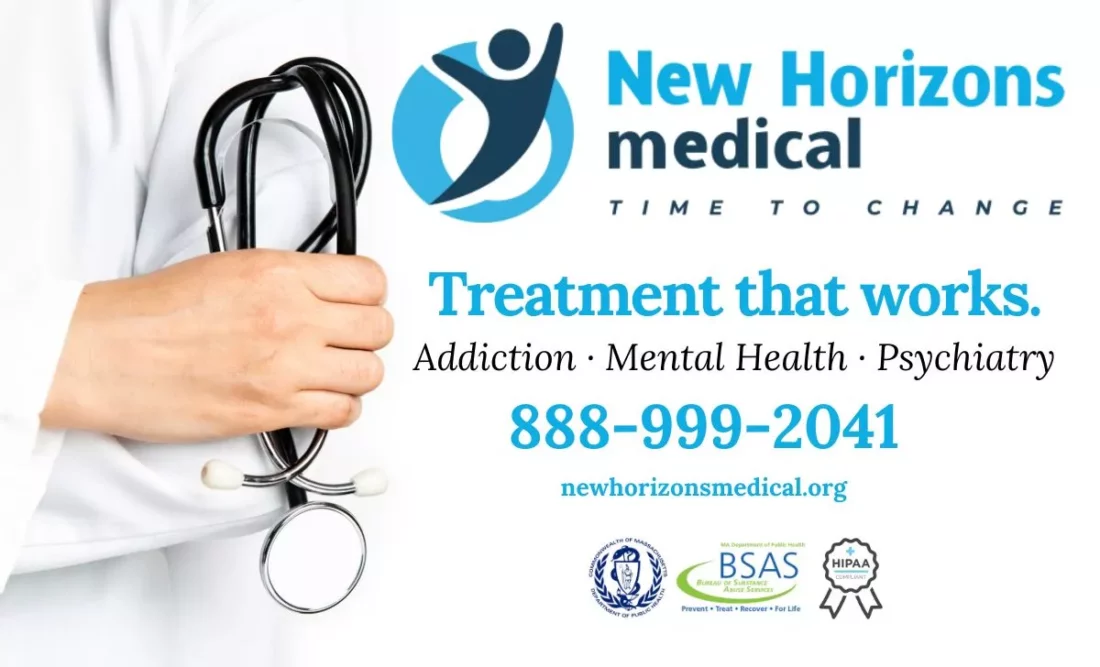
Withdrawal symptoms are one of the biggest hurdles in overcoming addiction. They can be daunting and, at times, life-threatening. Understanding what to expect and how to manage these symptoms can make a significant difference in the journey to recovery. This article provides a comprehensive guide on managing drug withdrawal symptoms, emphasizing the importance of seeking professional help, developing a support system, and implementing long-term strategies for overcoming addiction.
If you or your loved one needs medical treatment for drug addiction, contact New Horizons Medical at 888-999-2041 or complete the form below.

Understanding Withdrawal Symptoms
Withdrawal symptoms occur when a person stops or reduces the intake of a substance they have become dependent on. Symptoms can vary widely depending on the drug but often include:
- Physical Symptoms: Nausea, vomiting, muscle pain, sweating, shaking, and increased heart rate.
- Psychological Symptoms: Anxiety, depression, irritability, insomnia, and cravings.
The severity and duration of these symptoms can vary based on several factors, including the type of drug, the duration of use, and the individual’s overall health.
Phases of Withdrawal
- Acute Withdrawal: This phase begins within hours of the last dose and can last from a few days to several weeks. It is marked by the most intense physical and psychological symptoms.
- Post-Acute Withdrawal Syndrome (PAWS): This phase can last for months or even years and includes symptoms like mood swings, anxiety, and sleep disturbances. While less intense than acute withdrawal, PAWS can still significantly impact an individual’s recovery process.
Practical Strategies for Coping
- Seek Professional Help: Medical supervision is crucial, especially for managing severe drug withdrawal symptoms. Healthcare providers can offer medications to ease symptoms and ensure a safer detox process .
- Develop a Support System: Surround yourself with supportive friends, family, and peers. Joining a support group can provide a sense of community and understanding.
- Stay Hydrated and Nourished: Withdrawal can dehydrate and deplete the body. Drink plenty of water and eat nutritious meals to support your body’s recovery.
- Practice Relaxation Techniques: Techniques such as deep breathing, meditation, and gentle exercise can help manage stress and anxiety .
- Follow a Structured Routine: Having a daily schedule can provide stability and reduce feelings of chaos and uncertainty.
Source: SAMHSA.
Long-Term Strategies for Overcoming Addiction
- Ongoing Therapy: Engage in therapy or counseling to address underlying issues that may contribute to addiction. Cognitive-behavioral therapy (CBT) is particularly effective.
- Medication-Assisted Treatment (MAT): For some individuals, medications like methadone, buprenorphine (Suboxone), or naltrexone can help manage cravings and maintain sobriety.
- Healthy Lifestyle Changes: Incorporate regular exercise, healthy eating, and sufficient sleep into your routine to support overall well-being .
- Avoid Triggers: Identify and avoid situations, people, or environments that may trigger cravings or relapse.
- Stay Connected: Continue participating in support groups or recovery programs to stay motivated and accountable.
Source: National Library of Medicine.
An Example Journey to Drug Addiction Recovery
- Seek Professional Help for Supervised Detoxification and Therapy: Start by consulting a healthcare professional or addiction specialist who can guide you through a safe detox process. This may involve medications to manage withdrawal symptoms and therapy sessions to address underlying issues contributing to addiction.
- Address Underlying Mental Health Issues Through Regular Therapy Sessions: Attend regular therapy sessions with a licensed therapist or counselor who specializes in addiction and mental health. Explore the root causes of addiction, develop coping strategies, and work on improving emotional resilience.
- Secure Stable Housing Through Social Services or Transitional Housing Programs: Contact local social services or nonprofit organizations that offer housing assistance for individuals recovering from addiction. Explore transitional housing programs that provide a supportive environment while transitioning to independent living.
- Reconnect with Positive Social Circles that Support Sobriety and Well-being: Seek out support groups, such as Narcotics Anonymous or Alcoholics Anonymous, where you can connect with others who understand your journey. Foster relationships with friends and family members who support your sobriety and well-being.
- Engage in Job Training and Secure Employment to Foster Independence and Financial Stability: Enroll in job training programs or vocational courses to develop skills that align with your career goals. Update your resume, practice interview skills, and actively search for job opportunities. Consider volunteer work or internships to gain experience and build confidence.
- Establish Healthy Habits Like Regular Exercise and Nutritious Eating: Start with small, achievable goals such as daily walks, yoga, or gym sessions to incorporate physical activity into your routine. Plan balanced meals rich in fruits, vegetables, lean proteins, and whole grains to support overall health and recovery.
- Practice Mindfulness and Stress Management Techniques for Emotional Well-being and Stability: Incorporate mindfulness practices such as meditation, deep breathing exercises, or journaling to reduce stress and promote emotional stability. Explore hobbies and activities that bring joy and relaxation, fostering a positive outlook on life.
Family and friends, learn practical tips on how to help a family member struggling with addiction.
Conclusion
Managing drug withdrawal symptoms is a critical step in the recovery journey. It’s essential to seek professional help, build a robust support system, and adopt practical strategies to cope with drug withdrawal symptoms. Remember, overcoming addiction is not a solitary endeavor. Support from professionals, loved ones, and peers can make all the difference.
If you or your loved one needs medical treatment for addiction, contact New Horizons Medical at 888-999-2041 or complete the form below.


